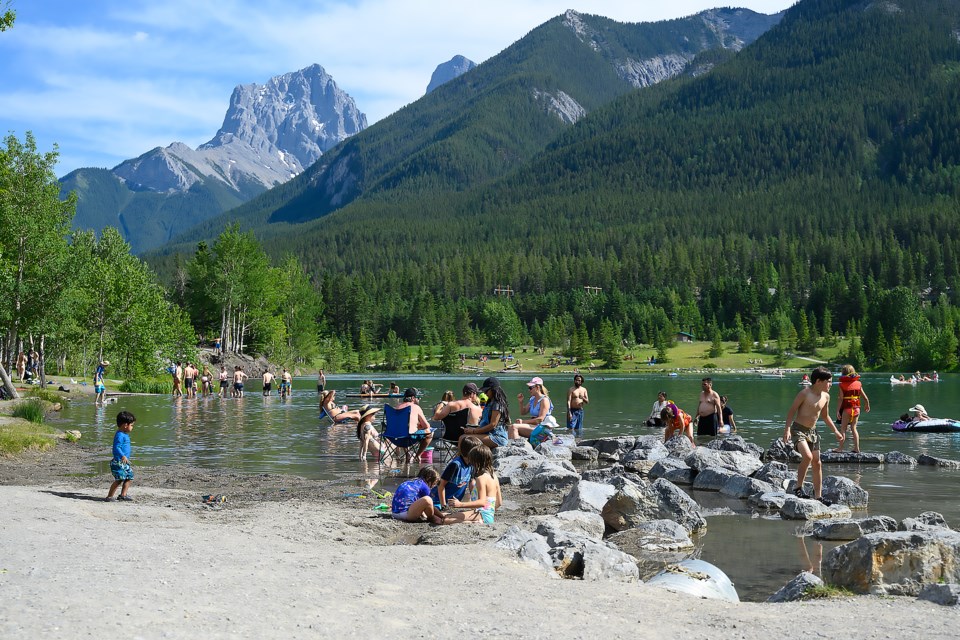BOW VALLEY – One temperature record has been broken for Banff and the Bow Valley area in July, so far, and the weekend threatens to break more as a heat warning looms.
Banff and Bow Valley Provincial Park, with record highs of 30.6 and 31.9 Celcius, respectively, broke temperature records July 8. The previous record for Banff was 29.5 C in 2017 and the record for Bow Valley Provincial Park was 30.6 C in 1952.
While there were no records broken between July 8-17, the weekend forecast is shaping up to challenge historic highs.
“We’re going to be flirting with record temperatures through much of the weekend and into the start of the next work week at this point in time,” said Environment Canada meteorologist Brian Proctor.
“We’re really not seeing any general cool down until well into next week.”
Banff’s records for July 20 and 21 were set in 1979 and 1931 at 32.6 C and 31.7 C, respectively, with records dating back to 1887. Environment Canada is predicting highs of 30 C for Saturday (July 20) and 32 C for Sunday (July 22).
Bow Valley Provincial Park records for July 20 and 21 were both set in 1936 at 33.9 C and 32.2 C, respectively. Records date back to 1928. The forecast for the weekend is predicting a high of 31 C on Saturday and 32 C on Sunday.
A heat warning remains in effect for Canmore, the MD of Bighorn, Kananaskis and Mînî Thnî. Banff is currently exempt from the warning as overnight lows reach below 14 C.
“One of the things we look at for heat warnings is consecutive days of temperatures at or above 29 C and where the overnight low doesn’t recover low enough to about 14 C,” said Proctor.
“What’s really happening in those kinds of situations is people are getting overwhelmed by the heat to a certain degree and the accumulation of heat. We really need those overnight lows to fall down drastically and to cool down below that 14 C mark, so that the body can start to recover from the heat stress it's been under in the days before.”
Environment Canada is predicting overnight lows will range from 12 to 20 C for the next several days, with daytime highs between 28 to 36 C.
Proctor reminded those residing or visiting areas under the heat warning to be mindful of individual heat tolerance.
“Various people tolerate heat to different degrees based upon what their own physiology is and also based upon what their acclimatization to heat is,” he said.
“The very young and very old, or people with compromised immune systems, really don’t tolerate that heat well. So it’s really important if you’re out and about, to make sure you stay hydrated – have lots of water available.”
If you’re feeling effects of the heat, seek shelter, and consider seeking out civic buildings that have air conditioning for respite.
Also be aware of neighbours, pets and livestock.
“Just check in and make sure they’re doing OK. It’s really important that we take care of each other in these kinds of situations and circumstances,” said Proctor.
The Local Journalism Initiative is funded by the Government of Canada. The position covers Îyârhe (Stoney) Nakoda First Nation and Kananaskis Country.




